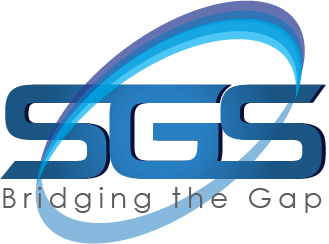
(Oct-2014) Remember Magic Leap, the secretive “augmented reality” company, raising some $500 million from Google and others?
It’s a story that seems so preposterous, even by the bubbliest standards of tech investing — a Florida-based company, run by an eccentric CEO, who promises he can deliver mind-blowing “cinematic reality” and is raising a giant funding round without unveiling a single product — that it’s tempting to dismiss it as a mirage.
But Magic Leap is real. And it is really getting huge checks from tech and media companies. And we gather that it will be showing itself off to the public soon.

Here’s what we can tell you about it for now: In addition to Google, investors in the new funding round — likely to be in the $450 million to $500 million range — include chipmaker Qualcomm; Legendary Entertainment, which produces movies like “Godzilla” and “Interstellar,” and which just raised $250 million of its own from SoftBank; Obvious Ventures, an investment fund co-founded by Twitter co-founders Ev Williams, along with entrepreneur and investor James Joaquin; and Andreessen Horowitz. None of those folks are commenting.
But Google — and this is Google proper, not Google Ventures or Google Capital — will be the lead investor. Investors say Magic Leap was seeking a deal that valued the company at $1.2 billion prior to the investment, which would give the company a total value in the $1.6 billion to $1.7 billion range.
[UPDATE: The final total for the round: A whopping $542 million. Additional investors include KKR and Kleiner Perkins. Google Android and Chrome boss Sundar Pichai will join Magic Leap’s board. Here’s the release.]
As for Magic Leap’s product itself? This is a little fuzzier. But the thrust is that the company is working on hardware and software to deliver “augmented reality” that adds computer-generated images on top of what you’re seeing naturally to create convincing optical illusions. The company’s website shows off images of a baby elephant that appears to be hovering above someone’s hands, and a submarine floating above a city street.
Sources say a key part of Magic Leap’s plans involves a wearable device that will track users’ eyeballs and project images on to them. We’re also told the company intends to use an infrared camera similar to the Microsoft Kinect to create a 3-D understanding of the world around the wearer — so the virtual objects can appear to go both in front of and behind things.
This is called “object occlusion,” and along with the capability for depth perception, it’s supposedly a leg up Magic Leap would have over today’s virtual reality players like Oculus VR, which Facebook bought for $2 billion earlier this year.
People briefed on the company’s plans said that because of the eyeball projection, Magic Leap may be anticipating needing FDA approval. Presumably, CEO Rony Abovitz’s history, which involves co-founding a surgical robotics company, would be helpful there.
Then again, Google has lots of experience with lots of things. And now that it has made a substantial bet on Magic Leap, you can imagine it will be offering all kinds of assistance. But people familiar with Google’s involvement say the company doesn’t have any plans to match it up with Google Glass, its own wearable line.
People familiar with the company say Magic Leap was having trouble convincing Silicon Valley types to drop everything and move to Hollywood, Fla., where it is based. So it recently opened a Palo Alto, Calif., engineering office led by Gary Bradski, whose title is VP Computer Vision and Machine Learning.
Bradski founded Industrial Perception, which was one of a bunch of robotics companies Google bought last year. But Bradski couldn’t be persuaded to stay at Google. “I moved away from large sums of guaranteed [money] to do something bigger,” he wrote on LinkedIn, calling Magic Leap “[t]otal stealth, total cool.”
(Source: Recode.net)
